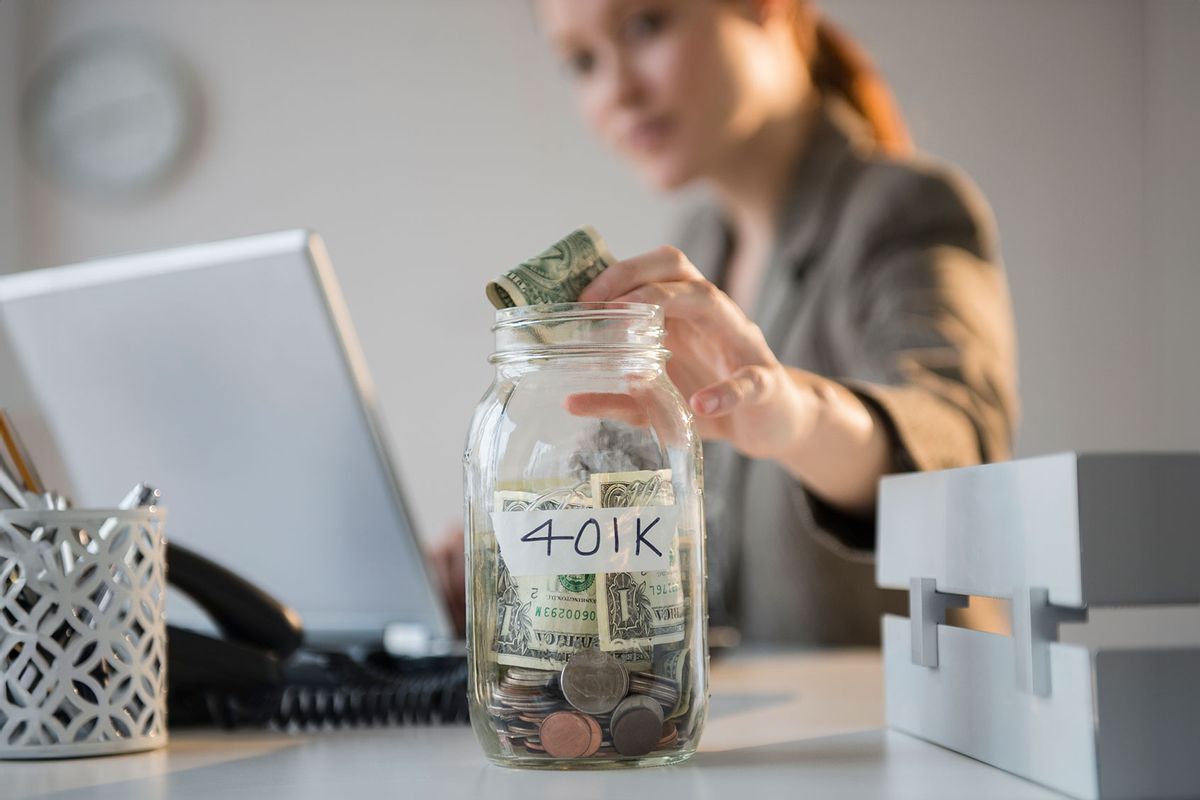Women live longer, earn less and save less — leaving them uniquely vulnerable to financial insecurity in retirement, especially at a time when the Trump administration is seemingly using tariffs to play chicken with other countries.
Regardless of the motives, Trump’s aggressive policies have shaken international stock markets in recent days, erasing trillions from Americans’ retirement accounts and making women especially at risk because they’re already disadvantaged by lower earnings and caregiving responsibilities.
A lot of the challenges women face aren’t new: They are living longer than men, and yet their retirement account balances are often 30% lower than men’s, according to the latest research from investment company BlackRock.
Now stock market jitters are adding to the overall uncertainty, making financial planning more challenging than even during COVID or the Lehman Brothers collapse of 2008, according to economic experts.
Even as stocks soared following Trump’s announcement of a 90-day pause on reciprocal tariffs on Wednesday, unease over the economy's future and security continued.
“I’m worried about Social Security, too, because nobody can predict what the president is going to do,” said Julie, a Wisconsin resident who is partially retired and declined to give her last name. “I’m having a meeting with my financial adviser in about two weeks. I can’t wait to meet with him to find out what I should do.”
We need your help to stay independent
A recent survey from the Employee Research Benefit Institute found that 40% of women say they’re not confident they’re doing a good job planning financially for retirement, while 71% said preparing for it makes them feel stressed, versus 56% of men.
“When women have lower account balances (and less wealth overall), they are more vulnerable when the value of their investment drops — more so, the closer they are to retirement,” said Amy Matsui, senior director of income security at the National Women’s Law Center.
Pay gap, low wages hurt women
The gender pay gap is a major factor in setting women back when it comes to saving: Women still earn only 83 cents for every dollar earned by men. The difference compounds over time and directly impacts their ability to save long term.
“Women, especially women of color and those facing multiple forms of marginalization, tend to have lower incomes because of pay discrimination, occupational segregation and overrepresentation in the low-paid work,” Matsui said. “They also tend to spend more time out of the workforce because of caregiving, make up a larger share of single-parent households and are more likely to work part-time.”
But it’s not just about income disparities. Women are disproportionately represented in low-wage sectors like child care, health care and retail — jobs that often lack robust benefits like pensions or 401(k) plans.
"Women, especially women of color and those facing multiple forms of marginalization, tend to have lower incomes because of pay discrimination, occupational segregation and overrepresentation in the low-paid work"
“We’ve looked at basically the 40 lowest-paid jobs,” Matsui explained. “Women, especially women of color, are really overrepresented in these jobs where wages are not rising and benefits are scarce.”
This structural inequality leaves many women financially unprepared for retirement despite decades of hard work.
Market volatility adds to uncertainty
The risks extend beyond the stock market. The U.S. 10-year Treasury yield has surged by 65 basis points in four days, briefly exceeding 4.5%, making it the most dramatic spike since the 2008 financial crisis. This unusual selloff in bonds, which are normally considered safe assets during economic uncertainty, is attributed to Trump's new tariffs, weak demand for Treasurys as well as fears of foreign investors offloading U.S. debt.
“This is not consistent with how the government securities market should trade,” Amar Reganti, a fixed-income strategist at Hartford Funds, told MarketWatch.
"It could be worse than COVID, worse than Lehman Brothers [in terms of Americans' wealth destruction] because there is no bond offset," said Laurence McDonald, author of "A Colossal Failure of Common Sense: The Inside Story of the Collapse of Lehman Brothers," in a video posted on X on Tuesday. “What’s happening today is we’ve lost about 9 trillion dollars in American wealth in 401Ks. If you look back to COVID and Lehman, investors lost about 8 trillion dollars, but they made back $3.5 billion on the bond side.”
In any scenario, the lack of clarity and increasing uncertainty is adding to Americans’ anxieties.
Mariah, 37, who declined to give her last name, said she and her husband are in "wait and see" mode as they figure out the best course of action for their retirement savings and their family of six.
“It’s so fluid and it’s changing every day,” she said while loading two toddlers in her car at a Target parking lot in a Milwaukee suburb. “I just hope we can turn it around.”



Shares